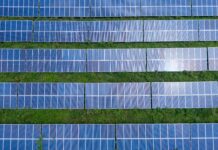Doug Young
Bottom line: New York IPO plans by a Canadian Solar unit and Solar Power Inc could auger a new wave of similar listings by Chinese new energy power plant builders, offering investors a higher growth alternative to traditional utilities.
Just a day after solar panel maker Canadian Solar (Nasdaq: CSIQ) announced it has spun off its fast-growing solar power plant-building unit for a US listing, another China-based peer is discussing plans for a similar IPO. This time a company called Solar Power Inc is the one disclosing plans for a New York listing to raise up to $300 million, in an emerging trend that’s seeing the rise of a new generation of specialty solar energy plant builders and operators.
A secondary trend in this sudden spurt of new activity also looks encouraging for New York, which has become a pariah these days among Chinese companies that feel US investors are undervaluing their stocks. These 2 new listing plans by Canadian Solar and now Solar Power acknowledge that New York is still an attractive option for certain kinds of Chinese companies, which I’ll address towards the end of this post.
First let’s take a closer look at the new media interview that quotes Solar Power CEO Roger Ye discussing his plans for a $300 million New York IPO at an unspecified future date. (English article) While Ye doesn’t give a timetable, the fact that he’s discussing his plan and giving a fund-raising target probably indicate that Solar Power has hired an investment bank and hopes to make an offering in the next 12 months.
Set up at the start of this year, Solar Power is a China new energy play that clearly operates in the area of solar power plant construction and ownership. The company was founded by 2 leading Chinese entrepreneurs, one from the online gaming sector and the other in real estate.
The company originally hoped to secure much of its money through crowd funding sources that let individuals invest as little as 1,000 yuan ($160) each. But this latest move seems to show that the micro-funding approach probably isn’t raising as much money as the company’s founders originally hoped. That’s not a huge surprise due to relatively low return rates from power generation projects in general that might fail to excite many smaller investors.
Global Aspirations?
One analyst points out the move to list in New York shows that Solar Power wants to become a global plant constructor, though I do suspect the company will initially mostly build plants in its home China market. That contrasts a bit with the more globally-focused Canadian Solar, which this week announced it will spin off its own solar plant construction unit and list it in New York. (previous post) I speculated that offering could raise at least $100 million, but Solar Power’s figure could indicate that Canadian Solar’s target could be a bit higher.
Traditional solar panel makers have been some of the most abused companies on Wall Street over the last 3 years, which makes it somewhat surprising that these 2 new listings are both being proposed for New York. Solar Power’s Ye cites the greater stability of US capital markets for his selection of New York over China, and that’s certainly true. What’s more, Chinese investors are unlikely to show much interest in these companies, since their rates of return are quite steady in the mid- to high single-digit rates.
That means these companies’ stocks are unlikely to get the double- or triple-digit growth that many Chinese punters like to believe they can get in their local markets that are more like casinos than serious financial markets. By comparison, the US has a large field of mature institutional investors that like to buy more conservative but dependable assets like electric power utilities. These new solar plant operators would provide an interesting new product in that space, offering investments with higher risk but also return rates and growth potential than traditional electric utilities.
Doug Young has lived and worked in China for 15 years, much of that as a journalist for Reuters writing about Chinese companies. He currently lives in Shanghai where he teaches financial journalism at Fudan University. He writes daily on his blog, Young´s China Business Blog, commenting on the latest developments at Chinese companies listed in the US, China and Hong Kong. He is also author of a new book about the media in China, The Party Line: How The Media Dictates Public Opinion in Modern China.






